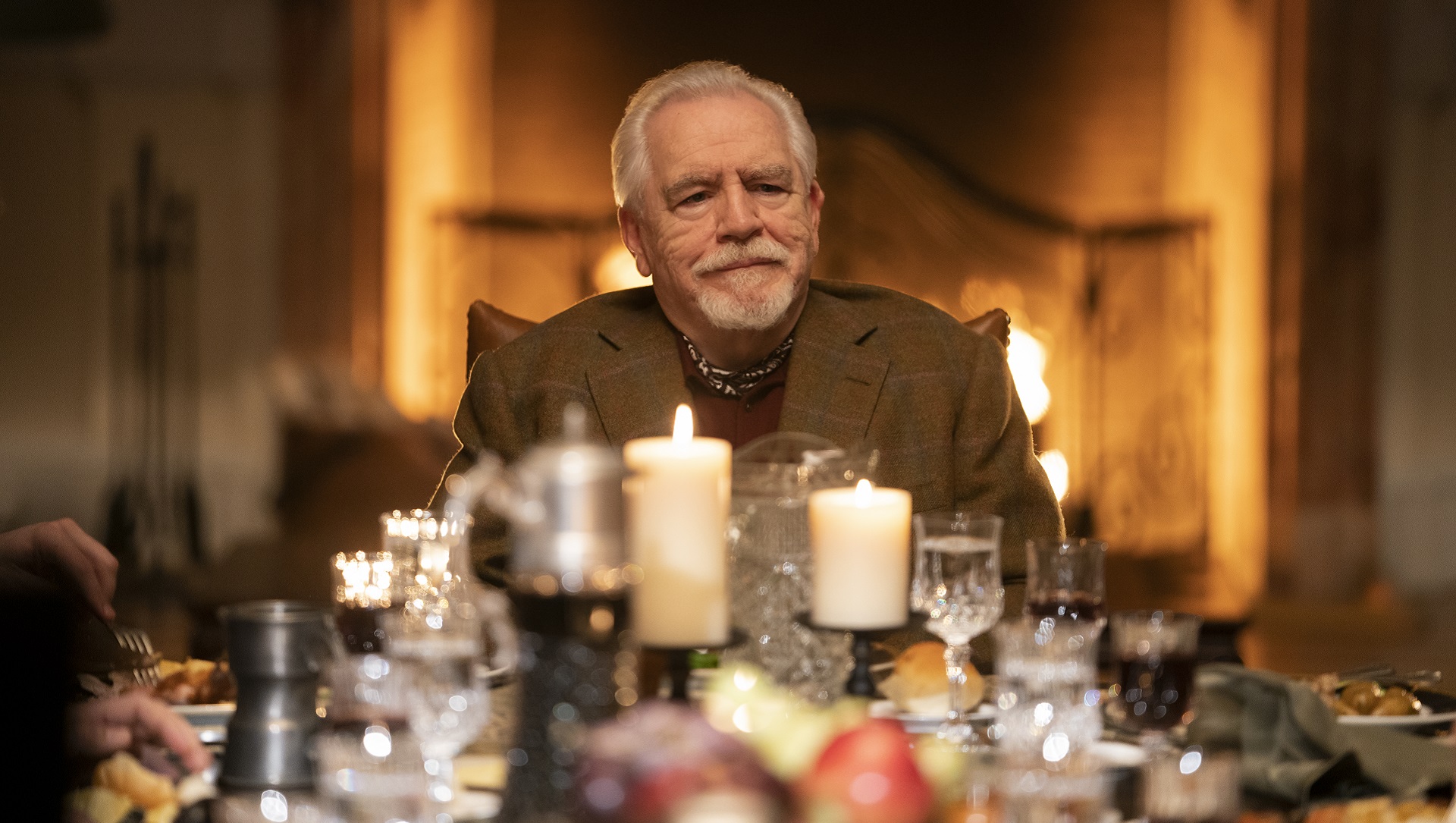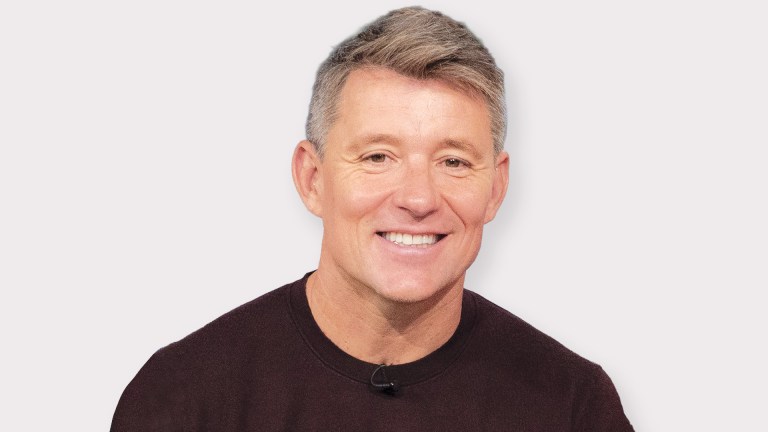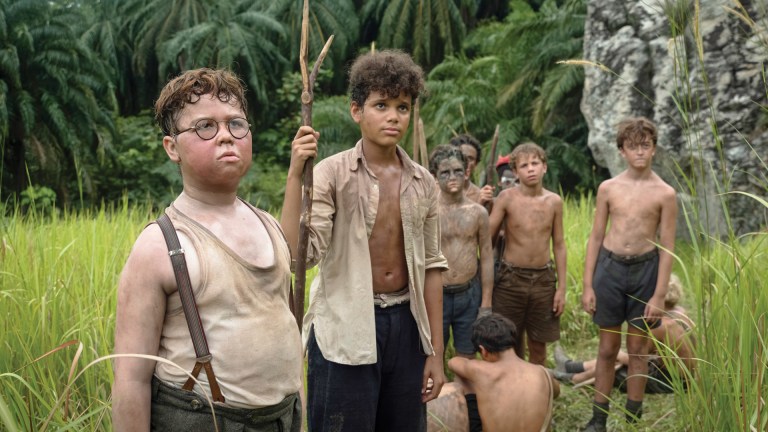The first thing many of our readers will want to know is, can you give us any good news about filming the next series of Succession?
Well, we have to be careful due to the obvious [Covid]. HBO wants to protect that show because it’s a key show for them. In terms of its success, it’s probably their top show. People have been really been watching it quite obsessively, sometimes two or three times over. So they’re very protective of us and we have to get all the protocols right. We’ve got our own medical department dealing with the Covid thing. We’ll get going, but not until maybe November at the soonest, maybe even not until the beginning of next year.
Well that’s a little disappointing. But you also have a new film out, The Bay of Silence [an eerie thriller in which he plays the shady ex father-in-law of a tormented Olga Kurylenko]. Do you particularly enjoy playing these kind of sinister, ‘Is he a good guy or is he a bad guy’ characters – you do seem to play a lot of them.
Well, I did this film partly as a favour to a friend, an actress I’ve known for a long time called Caroline Goodall [the film’s scriptwriter]. She’s been trying to get this film going for ages and ages, and I wanted to help. And, of course, the bonus was to work with Olga and Claes Bang [who plays Kurylenko’s also rather dodgy husband]. I have such huge respect for him, having seen Dracula and before that The Square, in which he was stunning. He’s like an old- fashioned movie star. So I was very, very happy to be Claude Rains to his Cary Grant.
I think it became the most important thing about Logan, that he was self-made
It must be interesting for an actor to have a role where you don’t give yourself away too easily or too quickly.
That’s what I crave as an actor. The secrecy of a character. I always make sure that the audience does the work, they have to figure out who the character is. I don’t give too much away. There are actors who come out of the starting gate full blast. I don’t do that. Lindsay Anderson [legendary director of This Sporting Life and if….] gave me this great advice when I was a young actor. He said, Brian, Brian, Brian, don’t just do something… stand there. And I thought, well, right then. That’s the kind of acting I’m interested in, especially on screen.
Advertising helps fund Big Issue’s mission to end poverty
Were you always a lover of the big screen?
Oh yes, when I was a kid it was all about the movies, the movies, the movies. I went to ‘the pikchurs’ all the time. I lived in Dundee and there were 21 cinemas.And I think that I visited every single one of them. I lived in a place called Brown Constable Street, which is a very odd name. And there were two cinemas right next to me, The Broadway on one corner and The Royal on the other. And of course you had three day programmes then, and two features in every sitting. So you could see eight films in a week. And believe me, I did.
Support The Big Issue and our vendors by signing up for a subscription
But I’m now a huge fan of television. Partly because of its access to all audiences. I feel that television has actually taken over as a much more egalitarian art form. And I love the possibilities of the long form of television. There are no three acts like you have in the cinema or the theatre. You just have the first act then it’s endless, endless middle acts. I love that. And I really have respect for the writers working in it now.
In terms of your own background as an actor from a working-class background in Dundee, what do you think gave you the spur to do something so ambitious and ostensibly intimidating? You didn’t have an easy childhood. Your father died when you were just eight, which must have put a huge strain on the family.
Oh yes, we were in real poverty. After my dad died my mum had a series of nervous breakdowns and electric shock treatments. Everything changed radically. My eldest sister took care of me but all the siblings left; one sister emigrated to Canada, my brother went off to join the army. So I was on my own. I was totally on my own. And actually it was the best thing that happened because I learned to be self-sufficient at a very early age, I learned to be independent. That was a huge thing for me, a wonderful thing. Because I just thought, my ma’s crazy, my dad’s gone, it’s just me now. And that’s it, that’s the story, that’s where you begin from.
Advertising helps fund Big Issue’s mission to end poverty
Your Succession character, the formidable media mogul and tyrannical patriarch Logan Roy, is a Dundee-born Scot, just like you. As a fellow Scot I found so many aspects of that identity especially interesting. All of the details were right, even down to what football team a man with Logan’s background would support [Hibs, if you haven’t been watching]. Were you keen to work with writer Jesse Armstrong to get all the Scottish details right?
When I first met Jesse I said, you know Logan could be Scots. And he said, oh no, he’s got to be American. At the end of the day we came to a compromise. He was born in Quebec, Canada. So for nine episodes of the first series I was under the impression I was born in Canada. Then we were filming the 10th episode and Peter Friedman, who’s wonderful and plays Frank [Vernon], came up to me after he’d been doing some dubbing and said they’ve changed your birthplace, you’re no longer born in Quebec. I said, so where was I born, and he said, it’s somewhere called ‘Dandee Scotland’. I said, what?!
So I went up to Jesse, who is a guy who likes to keep his cards close to his chest, and I said, Jesse, what is this? And he said, oh, we thought that would be a nice little surprise for you. I said it’s a hell of a surprise, for nine episodes I’ve been under the impression that I was from Quebec. I’ve been doing a Canadian accent! But he’d been watching my performance and he saw a kind of quality that made him think, I see what’s starting to happen here, let’s take it this way instead.
I think it became the most important thing about Logan, that he was self-made. So he’s not Murdoch, he’s not Trump. He did it all himself. That makes the show a kind of bigger, deeper, more Shakespearean thing, without being pretentious. While still maintaining that incredible, satirical, funny, humorous dark writing. And that’s been to my total advantage.
So other than hopefully starting up with Succession again at the end of the year, what other plans do you have?
Advertising helps fund Big Issue’s mission to end poverty
They want me to write a book so I might get round to that someday. I’m not nervous about it – I want to tell the stories but I also want to weave in the idea of purpose; what is life, what does it mean? I realised quite recently that I’ve been very lucky. I’ve lived my life and I have no regrets. There’s been a lot of sadness and loss but it’s had a shape to it. Only lately, for the very first time, have I got a sense of looking back and thinking… oh, yes, it’s been fine. Because finally I have a sense of the long haul. I wanted to become an actor when I was a boy. I’ve seen a lot of my contemporaries have moments of glory then fall away. I didn’t want that. I wanted to keep riding the wave and I’ve done that. Even if, at times, it was a very small wave.
The Bay of Silence is out now on DVD and digital download. Succession is available on NOW TV.









